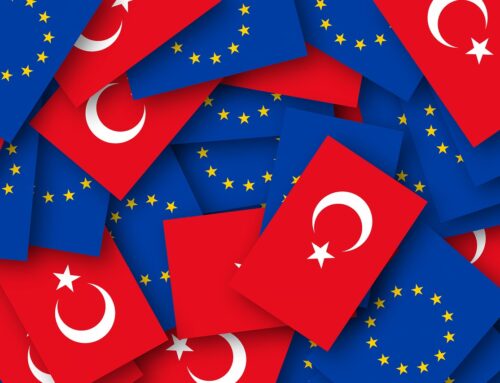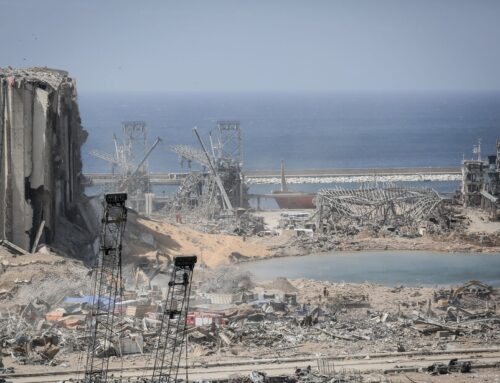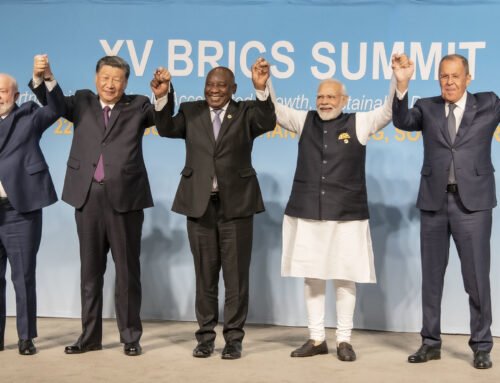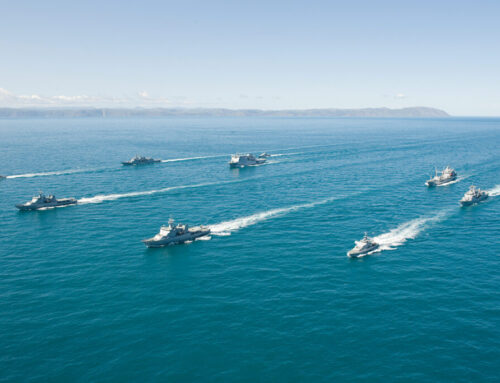Autor foto: Domena publiczna
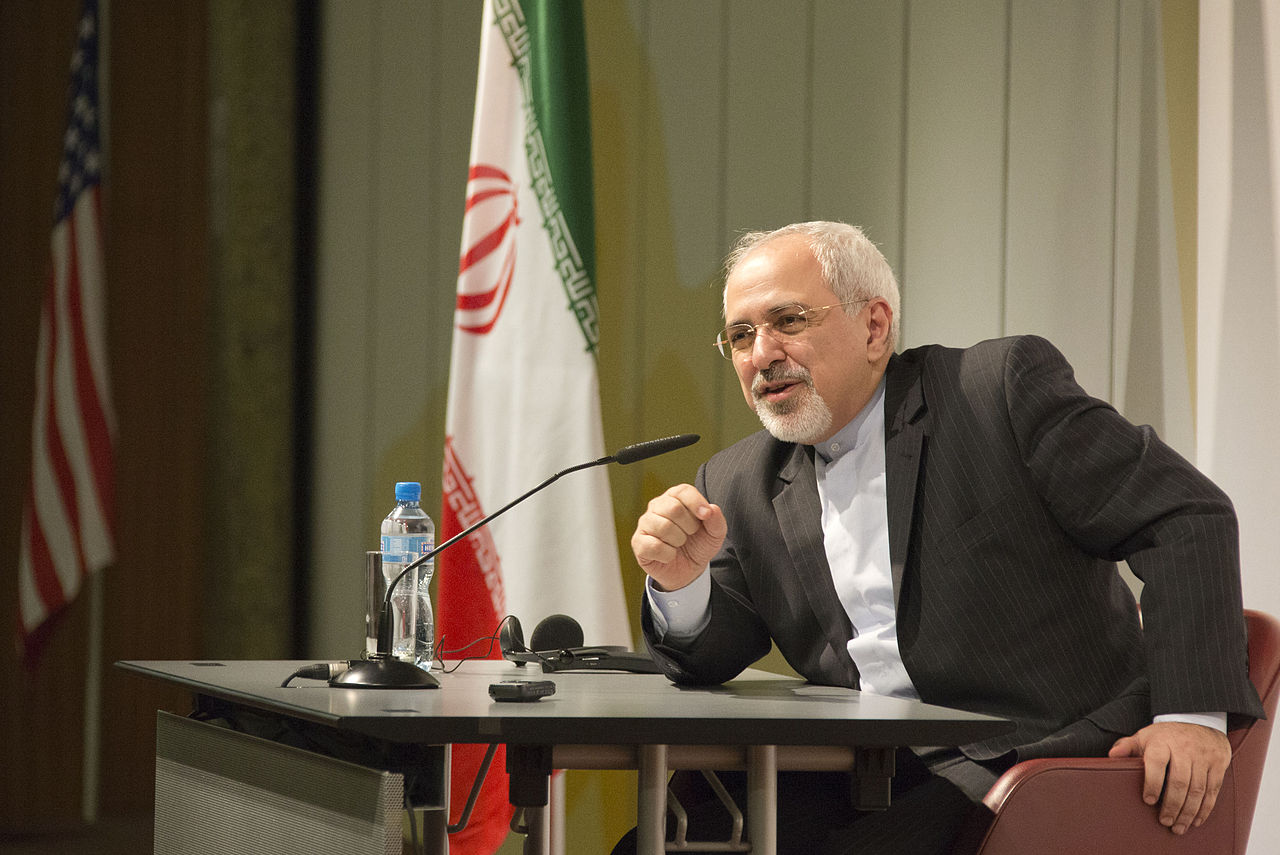
Iran’s opening to the world – possible consequences
February 2, 2016
Author: Jakub Gajda
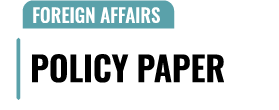



Autor foto: Domena publiczna
Iran’s opening to the world – possible consequences
Author: Jakub Gajda
Published: February 2, 2016
Western diplomats described the abolition of sanctions against Iran as a ‘diplomatic victory’. In the current situation there is a great possibility for economic rapprochement between Iran and the European Union, and the resulting economic benefits are obvious for the two sides. On the other hand, the victory of diplomacy was also received with a large dose of scepticism, especially in the Middle East and in the Islamic world. In fact, the scale of the implications is difficult to predict at the moment.
The strengthened position of Iran is not necessarily a good signal for Israel and Saudi Arabia and its allies. Other countries in the region are also watching Iran with mixed feelings. On the one hand, Turkey and Pakistan might really benefit from Iran’s opening up to the world (with regard to, for example, the transit of raw materials and other goods); on the other hand, their strong position and influence might also be affected by the country, which modelled on the projects from the 1970s by Shah Mohammad Reza Pahlavi, quite realistically, has the chance to become one of the world powers.
Security dimension
Iran is a key country for the security in the region. It is also one of the most important allies of the West in the fight against the Islamic State, which is the enemy of both Shiite Iran and the West. Iran remains an important player in both Iraq and Syria through alliances with these countries. It might have a huge role to play in the stabilization of these countries and a possible return to the status quo. What is quite important and also controversial in this context is that Iran is a supporter of maintaining the Syrian regime of Bashar al-Assad, in contrast to the position of the West but closer to Russia’s stance. In recent weeks, the death of Shia cleric Sheikh Nimr Baqir al-Nimr in Saudi Arabia has caused uproar between Riyadh and Tehran. This situation is both an expression of Saudi Arabia’s concern and a protest against the increasing role of Iran in the region. Meanwhile the attitude of Tehran is a demonstration of its aspirations, confidence and hard-line foreign policy. This state of relations between Iran and Saudi Arabia will likely result in greater Sunni-Shiite tensions in the whole Muslim world. It must be emphasized that Iran is an important player in Yemen. Through support for Shiite Houthi movement (although Iran’s authorities deny it), Iran conducts one of its proxy wars against Saudi Arabia. The strengthening of Iran may also indicate greater activity of the Shiite opposition in Bahrain, which in the near future could lead to another bloody conflict. Iranian-Saudi rivalry may also adversely affect the situation in Afghanistan, Pakistan and Lebanon, where the Shiite minority plays a large role in domestic politics. The Israeli-Palestinian conflict is another issue focusing attention of Iran, which invariably raises Israel’s concerns. It is Israel, next to Saudi Arabia, which regards with anxiety Iran’s rising power. Israel has not withdrawn from expressing concerns about Iran’s nuclear and ballistic programs (the Israeli authorities have continually expressed their concerns over the implementation of the P5 + 1 nuclear deal with Iran, which has also become the concern of Saudi Arabia and other Arab monarchies of the Persian Gulf sub-region). Thus, the current situation has seen the largest rapprochement between Israel and the countries of the Gulf Cooperation Council (GCC) for fifteen years. It is also worth mentioning the visits of delegations from Riyadh in Pakistan, as well as the anti-Iranian position of Turkey’s president regarding the conflict between Iran and Saudi Arabia. These facts also indicate concerns of countries in the region in the face of the upcoming rise of Iranian power.
Although the Iranian authorities try to emphasize that their policies are based on diplomatic solutions, respect to all states and peoples, and spread the message of peace, Iran’s increase in strength may result in the unprecedented strengthening of cooperation between its adversaries, as well as further escalation of Sunni-Shiite tensions in the region.
The economic dimension
The essence of the benefits of the lifting of sanctions imposed on Iran would be the country’s return to unrestricted trade in oil and gas. This state of affairs is undoubtedly beneficial for the countries with a high demand for these raw materials – mainly Europe and regions such as South Asia, and East Asia. The influx of Iranian raw material is obviously not good news for the other major producers and exporters of crude oil, starting with Saudi Arabia and the UAE. The release of Iranian petroleum has already resulted in a reduction of prices on the oil market, which may also have bad effects, as the global markets may be affected by over-supply of this raw material. Importantly, in the long term, Iran may well prove to be a strong competitor to Russia in terms of gas supplies to the European Union. However, it will require time due to Iran’s still modest possibilities related to the limited production capacity and underinvestment in infrastructure. Pakistan (IP pipeline), Turkey, and in the longer run still restless Iraq and Syria would benefit on the transit of Iranian resources.
The opening up of the Iranian economy to the world is not limited to raw materials. The economy of the country was inadequately supported by technologies from the outside not only in the years of sanctions, but actually since the Islamic Revolution in 1979, during which time it remained, to a lesser or greater extent, in international isolation.
Iran lacks competition in many sectors, including the pharmaceutical, food, motoring and aviation industries. Demand for many commodities has remained unfulfilled for many years and in principle is impossible to be met by Iranian manufacturers. Taking into consideration that the Iranians appreciate high quality products, this creates a great opportunity, not only for the producers of the countries of East Asia, but especially for investors from the West.
Poland-Iran – 542 years of peace, Go! Iran
Poland is one of the most anticipated economic partners of Iran. For a few months now Iranian media has talked a lot about the visits of Polish delegations in Iran, as well as the recent visit of representatives of the Iranian business in Poland. Trade turnover between Poland and Iran, which for several years has been drastically falling, last year fell to just tens of millions of dollars. After the reversal of the downward trend, which will start to take place this year, the amount of trade may soon reach up to $1 billion (according to the Iranian forecast). There is no denying that the potential relationship between Iran and Poland is huge. Polish state companies such as KGHM and PKN Orlen plan to engage in large mining projects in Iran, which can be described as investments of a strategic nature. However, Iran is also a great opportunity for Polish private companies. Interesting opportunities for cooperation can be seen in agricultural sector – farm machinery, fertilizers, animal feed, and agricultural products and technologies. The valuable tourist market might also open up. In the past few months Polish market has observed an emergence of several companies and organizations specializing in advising Polish companies which intend to direct their products and capital toward the Iranian market. Their actions may have a positive impact on the process of economic convergence. The main driving force of Polish-Iranian economic convergence, however, remains for the time being the government’s program Go! Iran, initiated by the Ministry of Economy. If it is continued and well-managed, it may bring major benefits to both the government sector and private enterprises.
Conclusions and recommendations for NATO, EU and Poland
- The lifting of sanctions, the inclusion of Iran to the SWIFT system, and the opening up of the large and absorbent Iranian market would bring obvious positive economic consequences, especially for the economy of the European Union.
- An important agreement on a common strategy to combat the so-called Islamic State may also be the fruit of constructive diplomatic dialogue with Iran.
- The situation in the Middle East may, however, further complicate due to an increase in strength of Iran and the attitude of its rival, Saudi Arabia, which has already resulted in an escalation of tensions between Sunni and Shiite.
- For economies based on oil and gas, the presence of Iran in the international market could mean a negative change.
- International organizations should continue to closely observe the Iranian nuclear program and trends in Iranian armaments.
- NATO should pay special attention to the relations between Iran and Saudi Arabia which, without the diplomatic activity of NATO and other major countries, may in the near future pose not only regional threats.
- Diplomatic actions of Western countries and the EU should focus on looking into opportunities for mediation between Iran and Saudi Arabia, as this issue impacts not only stabilization in Syria and Iraq, but also other Sunni-Shiite trouble spots in the Middle East.
- Poland should place special emphasis on cultural relations with Iran, while maintaining the current course of underlining centuries of good relations and cultural exchange undertaken in recent years.
- Go! Iran program initiated by Janusz Piechociński should be continued and should serve the interests of all sectors of Polish industry and export.
Author: Jakub Gajda, Research Fellow at the Casimir Pulaski Foundation


